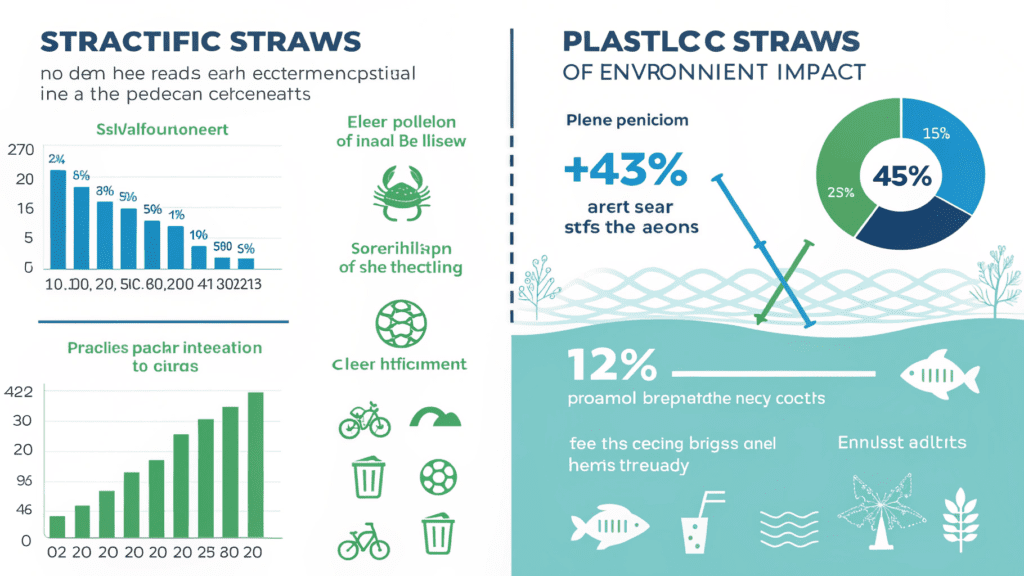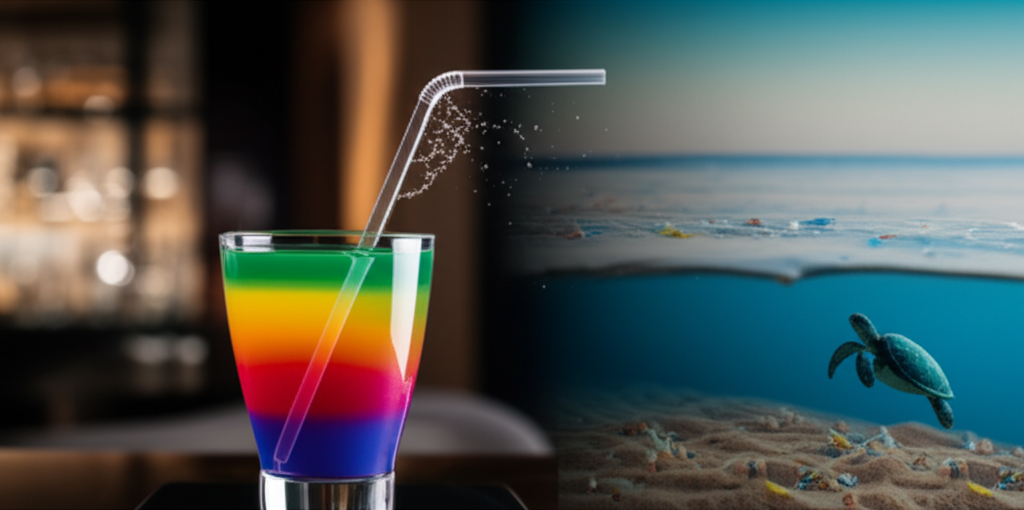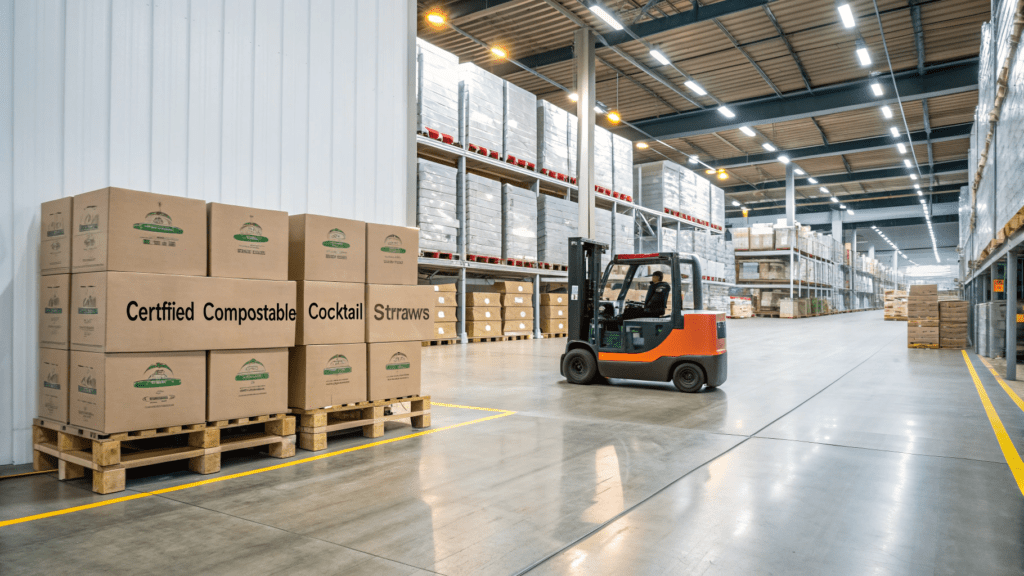
In the dynamic world of hospitality, where guest experience and brand reputation are paramount, an undeniable shift is underway. Hotels, cafes, and restaurants worldwide are confronting the escalating global crisis of plastic pollution, a problem amplified disproportionately by small, single-use items like cocktail straws. These seemingly innocuous accessories, often used for mere minutes, persist for centuries, breaking down into harmful microplastics that infiltrate marine ecosystems and even our food chains. This environmental burden is now intersecting with robust regulatory pressures, from the EU’s Single-Use Plastics Directive to escalating state and city-level bans across the US, compelling the sector to adapt or face significant fines and reputational damage. Beyond compliance, a powerful consumer consciousness is dictating market trends: with a striking 73% of millennials expressing willingness to pay more for sustainable products, eco-friendliness is no longer a niche preference but a critical factor in guest choice, brand loyalty, and overall market competitiveness.

The consequences of adhering to conventional plastic straws are far-reaching. Estimates suggest that 500 million plastic straws are used daily in the US alone, creating an immense environmental burden. Their minute size and often sticky residues prevent them from being effectively sorted and recycled, leading to them being discarded as general waste and contributing to rising disposal costs. This operational inefficiency is compounded by significant reputational risks; viral incidents, such as the widely circulated 2015 video of a plastic straw being removed from a sea turtle’s nostril, directly link traditional plastic straw use to negative brand perception and potential customer backlash. The ongoing public scrutiny means that every plastic straw served is a potential liability to your establishment’s image and bottom line.
The industry’s pivot from conventional plastic straws represents not merely a compliance headache but a profound strategic opportunity for innovation, competitive differentiation, and long-term value creation. This movement has a fascinating history, sparked by grassroots efforts like 9-year-old Milo Cress’s “Be Straw Free” project in 2011, and propelled into global awareness by powerful viral moments, notably the heartbreaking sea turtle video of 2015. These catalysts rapidly spurred global policy changes and significant corporate commitments from industry giants such as Starbucks, Marriott, and Hilton, all pledging to reduce or eliminate single-use plastic straws. Forward-thinking hospitality brands are already leading this transition, setting new benchmarks for environmental stewardship and an elevated guest experience. To understand the wider shift in foodservice, explore our detailedB2B Guide to Biodegradable Straws for Foodservice.

While the early days of sustainable alternatives, particularly paper straws, were met with skepticism due to rapid sogginess and a compromised user experience, the landscape has dramatically evolved. We are now in a new era of sophisticated, high-performance sustainable straw materials that have overcome these initial limitations, offering diverse and effective solutions for a variety of beverage needs. This expanding landscape of eco-friendly options includes advanced compostable plant-based straws, durable reusable solutions, and innovative edible alternatives.
Adopting next-generation eco-friendly straws offers tangible benefits that extend far beyond environmental compliance. These solutions significantly enhance guest satisfaction, streamline operational workflows, and powerfully reinforce your brand’s commitment to sustainability. For procurement managers, operations directors, and sustainability officers, key considerations include durability, resistance to temperature extremes, compostability certifications (such as BPI and USDA BioPreferred Program), and seamless aesthetic integration. Understanding the unique properties of each material is crucial for making informed decisions that align with your business needs and environmental goals. Dive deeper into making sustainable choices for your business with ourUltimate B2B Guide to Compostable Straws.

A Comparative Guide to High-Performance Eco-Friendly Cocktail Straws
- የሸንኮራ አገዳ ገለባ;
- Benefit: Exceptional durability (up to 24 hours in liquid), high heat resistance (up to 220°F or 100°C), neutral taste profile.
- ማካካሻ Certified biodegradable and compostable, decomposing naturally within weeks to months.
- Ideal Use: Versatile for all beverages, including hot coffee and iced cocktails, maintaining integrity throughout consumption.
- Agave Straws:
- Benefit: Mimics traditional plastic in strength and feel, heat-resistant, made from upcycled agricultural waste (tequila production byproduct).
- ማካካሻ Biodegradable and compostable, showing up to 95% breakdown in landfills within six months.
- Ideal Use: Premium cocktails and long drinks where a sturdy, plastic-like feel is desired without the environmental cost.
- PAS (ፖሊዮትሮክሮክሮክኪንግ) አውታ
- Benefit: Unrivaled durability and pliability, resists sogginess, wide temperature range (up to 212°F or 100°C), FDA-approved, BPA/PFAS-free.
- ማካካሻ Certified home-compostable (approx. 1 year) and marine-degradable (90% disintegration in 4-8 months), leaving no microplastics.
- Ideal Use: High-volume operations and luxury establishments seeking a truly plastic-mimicking, yet fully degradable, solution.
- Rice Straws:
- Benefit: 100% natural, unique edible option, resilient and sturdy structure.
- ማካካሻ Fully biodegradable, often breaking down in less than 90 days.
- Ideal Use: Innovative cocktail menus, providing a novel and completely zero-waste guest experience, perfect for viral marketing.
- Wheat & Reed Straws:
- Benefit: 100% natural, robust and resists sogginess, performs well in both hot and cold beverages, offers a rustic aesthetic.
- ማካካሻ Fully compostable and biodegradable in land or sea, with some wheat straws BPI certified compostable in as little as 42 days.
- Ideal Use: Classic cocktails, adding an authentic, natural touch; suitable for establishments prioritizing natural materials and rapid biodegradability.
- Bamboo Fiber Straws:
- Benefit: Sturdy and long-lasting, natural visual appeal, available in both compostable single-use and washable reusable formats.
- ማካካሻ Naturally biodegradable and compostable.
- Ideal Use: Versatile across all drink types, especially in high-volume settings or those aiming for a consciously rustic or natural brand image.
- Edible Straws (e.g., Seaweed or Sugar-based):
- Benefit: Provides a completely zero-waste solution, adds novelty, often gluten-free and non-GMO, can introduce subtle flavors.
- ማካካሻ Consumed after use, leaving no waste; if not consumed, hyper-compostable and marine-degradable.
- Ideal Use: Signature cocktails, dessert drinks, or as a distinctive, memorable element that enhances the overall guest experience.

These next-generation options have successfully addressed past criticisms, such as the sogginess of early paper straws, and actively avoid harmful substances like PFAS found in some older alternatives, ensuring both performance and safety.
The quantifiable returns on this strategic investment are significant. Firstly, a visible commitment to sustainability elevates your brand positioning, attracting and retaining eco-conscious customers. Studies show that 73% of millennials are willing to pay more for sustainable products, translating into boosted brand image, positive media coverage, and invaluable public relations opportunities. Secondly, proactive adoption of certified sustainable solutions builds regulatory resilience, future-proofing your business against tightening global regulations. In the US, states like California and New York have already implemented “straw upon request” laws and escalating fines for non-compliance, while Hong Kong’s 2024 plastic ban and the EU’s 2021 Single-Use Plastics Directive signal a global trend. Embracing these changes now avoids costly penalties and legal complications. Thirdly, there are long-term financial benefits through reduced waste management costs and decreased landfill fees, avoiding the economic impacts of negative press or consumer boycotts. Finally, this move provides a decisive competitive edge in a highly competitive market, signaling your establishment’s forward-thinking leadership and commitment to responsible operations. For comprehensive insights into future trends and developments, read our article onNavigating the Future of Foodservice with Biodegradable Straws.
It’s time to chart your sustainable course. The critical need for immediate action is clear, underscoring the undeniable benefits and the strategic imperative of transitioning to high-performance sustainable cocktail straws. This transition is not merely an environmental choice but a fundamental business strategy for achieving sustained growth, ensuring regulatory compliance, and enhancing brand reputation in the modern hospitality landscape. Businesses that embrace this shift now will not only protect the planet but also secure a stronger, more profitable future.
Take the Next Step Towards a Greener, More Profitable Future
We encourage decision-makers—procurement managers, operations directors, and sustainability officers—to move beyond awareness and interest to concrete, actionable implementation.
Schedule a personalized consultation with our sustainability experts






